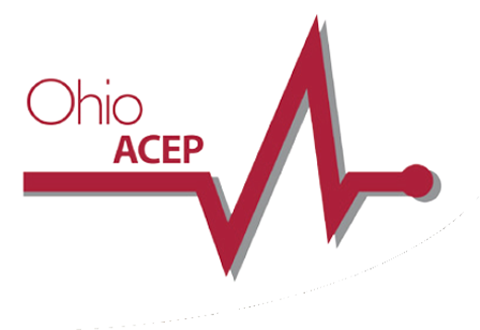Advocacy Updates
What We Are Watching at the Ohio Statehouse
Ohio ACEP is following a number of legislative issues related to the practice of emergency care in the state of Ohio.
Ohio ACEP Supported of Naloxone Legislation Moves Forward
Senator and physician Terry Johnson is sponsoring Senate Bill 137 to require hospitals to provide overdose reversal drugs, like naloxone. This initiative is championed by The Naloxone Project and supported by Ohio ACEP. The bill allows hospitals to seek reimbursement for the drug. On June 4, 2025, Ohio ACEP Past President Michael McCrea testified in support of the legislation. Dr. James Neuenschwander, presenting the Ohio Naloxone Project, also provided in-person testimony in support. Dr. Ryan Squier gave proponent testimony on Ohio ACEP’s behalf in the House Health Committee. This bill passed the Ohio Senate unanimously in October 2025 and was recently unanimously reported by the House Health Committee on February 18, 2026. Ohio ACEP is pleased to see this legislation moving forward.
Rural Hospital Reimbursement
New legislation from Representatives Jason Stephens and Kellie Deeter would provide for increased reimbursement for rural hospitals. House Bill 675 would provide weighed Medicaid payments for rural/underserved hospitals. The counties under the program would have less than 100,000 residents. Those counties would then be ranked based on their health outcomes and the Department of Medicaid would calculate rates based on that ranking.
Pharmacist Scope of Practice Bill Has Legs
Legislation from Senator Mark Romenchuk would increase the scope of practice for pharmacists. Senate Bill 230 would allow pharmacists to test for and treat certain medical conditions. Conditions a pharmacist would be able to treat include, the flu, COVID-19, RSV and other respiratory conditions as approved by the pharmacy board. Pharmacists would be permitted to manage drug therapies and order diagnostic tests for these conditions. The bill also provides that the pharmacist would be reimbursed for these services under Medicaid and insurance plans. This bill is considered a part of Ohio’s Rural Health Transportation application.
SB 230 is being considered by the Senate Health Committee. At the proponent hearing on February 18, 2026, supporters included: Ohio Pharmacists Association, Cardinal Health, Walmart, the Cleveland Clinic, the Ohio Chamber of Commerce and other groups. Ohio ACEP expects changes to be made to SB 230 before the committee takes action on the legislation and we are monitoring closely.
CRNA Bill Heads to the Governor
Legislation regarding the scope of practice of certified registered nurse anesthetists (CRNAs), sponsored by Representative Kellie Deeter has passed the Ohio Senate unanimously, sending the bill to the Governor for signature.
House Bill 52 removes supervision requirements for CRNAs to administer anesthesia, order drugs, and perform other clinical tasks. Instead, under the bill, they would do these things in collaboration with a physician, dentist, or podiatrist. The bill also eliminates the requirement that anesthesia be administered by a CRNA in the immediate presence of a physician, dentist, or podiatrist. Additionally, the bill mandates that patients be notified as to which type of provider (physician, CRNA, etc.) will be administering their anesthesia. Initially, the Ohio Society of Anesthesiologists (OSMA) and other groups opposed the bill. However, through work and negotiations with the bill sponsor, the groups shifted to a neutral stance.
Malpractice Legislation
House Bill 447, sponsored by Representative Brian Stewart, would increase the caps on civil case claims, including medical malpractice. Ohio enacted medical malpractice reform several years ago, including a cap on non-economic damages. HB 447 increases those caps and provides for annual inflation-based increases. The bill increases the caps to $350,000 per plaintiff and $500,000 per occurrence, up from $580,000 and $830,000. This bill is opposed by business groups and hospital and medical associations. It is under consideration by the House Judiciary Committee where there have been 3 hearings.
Want to Learn More?
If you’re interested in viewing the status of all of the bills Ohio ACEP is tracking, you can find that here.


